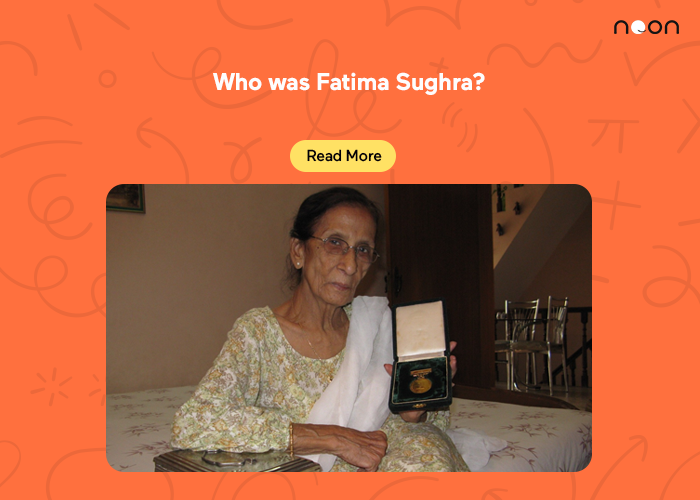Who was Fatima Sughra Begum of Pakistan? This is a question that many people ask, but few know the answer to. Fatima Sughra Begum was a Pakistan Movement Activist who fought for women’s rights and equality in her country. She was born in Lahore, Punjab in 1925 and died in Karachi, Sindh in 2007. Fatima Sughra Begum was a tireless campaigner for women’s rights in Pakistan.
She campaigned for the right to education for girls, the right to work, and the right to vote. She also worked to end child marriages and forced marriages. In addition, she helped to set up the first women’s bank in Pakistan. Fatima Sughra Begum was an inspiration to many women in Pakistan and her work continues to be an important part of the fight for equality in the country.
Who was Fatima Sughra of Pakistan?
Fatima Sughra was a Pakistani woman who was married to the Amir of Afghanistan, Mohammad Zahir Shah. She was born in Lahore, Pakistan in 1922. Her father was a wealthy businessman and her mother was from a noble family. Fatima was educated at home by tutors and later attended the University of Paris. She spoke fluent French and English.
In 1940, at the age of eighteen, she married Zahir Shah. The couple had five children together. Fatima was a loving wife and mother and devoted herself to her family. However, she also took an interest in Afghan politics and worked hard to promote women’s rights in her country. She founded the first women’s magazine in Afghanistan and helped to establish the first women’s university in Kabul.
Fatima Sughra Begum died in 2002 at the age of eighty. She is remembered as a strong and influential woman who worked tirelessly for her country and its people.
What was the Pakistan Movement
The Pakistan Movement was a political movement in the late 1940s that aimed to create an independent Muslim state in the form of Pakistan. The movement was led by Muslim politicians such as Muhammad Ali Jinnah and Fatima Sughra Begum, who both worked towards the goal of an independent Pakistan.
The origins of the Pakistan Movement can be traced back to the final years of British rule in India. Muslims, who made up around a quarter of the Indian population, began to feel increasingly marginalized and disadvantaged within Indian society. This sense of alienation and discrimination was exacerbated by the British policy of Hindu appeasement, which led many Muslims to believe that they would never be truly equal citizens in a Hindu-dominated India.
The idea of an independent Muslim state first gained traction in the 1930s, when Muslim politicians started agitating for the creation of a separate homeland for India’s Muslims. However, it was not until after World War II that the movement really gathered momentum. In 1946, Jinnah led the Muslim League to victory in key provincial elections, proving that Muslims were a viable political force in India. This victory was followed by widespread riots between Hindus and Muslims, which further increased support for the Pakistan Movement among Indian Muslims.
Finally, on Agust 14th 1947, Britain announced its intention to withdraw from India and partition the subcontinent along religious lines into Hindu-majority India and Muslim-majority Pakistan. This decision was met with joy by most Pakistani Muslims, including Fatima
What happened to Fatima Sughra Begum?
Fatima Sughra Begum was born in Pakistan in 1858. She was the daughter of a wealthy landowner. When she was young, her father arranged for her to marry a man who was much older than she was. The marriage did not last long, and Fatima’s husband died soon after they were wed.
Fatima remained in her father’s household after her husband’s death. She had no desire to remarry, and instead devoted herself to charitable work. She helped to establish schools and hospitals in her community, and worked tirelessly to improve the lives of those around her.
In 1947, when Pakistan became an independent country, Fatima was one of its most prominent citizens. She was appointed as the head of the Women’s National Democratic Party, and played a key role in shaping the new nation’s Constitution.
However, just two years after Pakistan’s independence, Fatima passed away at the age of 89. Her legacy continues to live on through the many institutions she helped to create, and the countless lives she touched during her lifetime.
Conclusion
Fatima Sughra Begum was an incredible woman who made an impact on Pakistan through her work in education and women’s rights. She was a tireless advocate for the advancement of women and helped to found several organizations that provided opportunities for women in Pakistan. Fatima Sughra Begum was an important figure in Pakistani history and her legacy continues to inspire Pakistani women today.
If you’re looking for an easy and convenient way to learn about other subjects, look no further than the Noon app. With over 10,000 lectures available, it’s easy to find something that interests you and start learning from anywhere around the globe. Plus, with the option to attend live classes and find teachers easily, Noon app makes learning fun and interactive. So what are you waiting for? Download the Noon app now and start expanding your knowledge!
